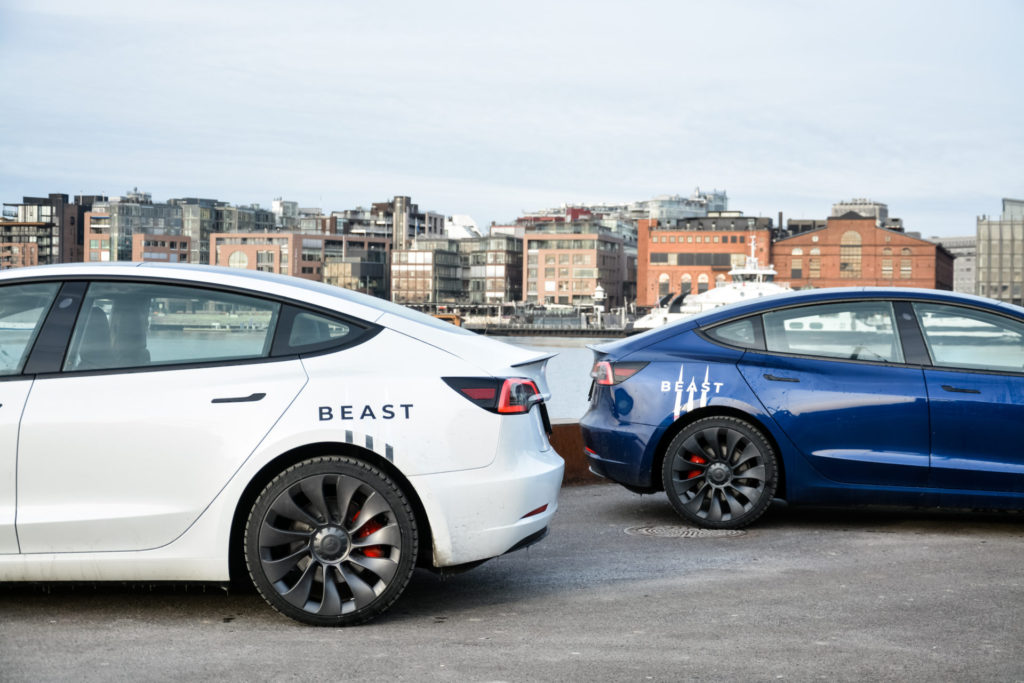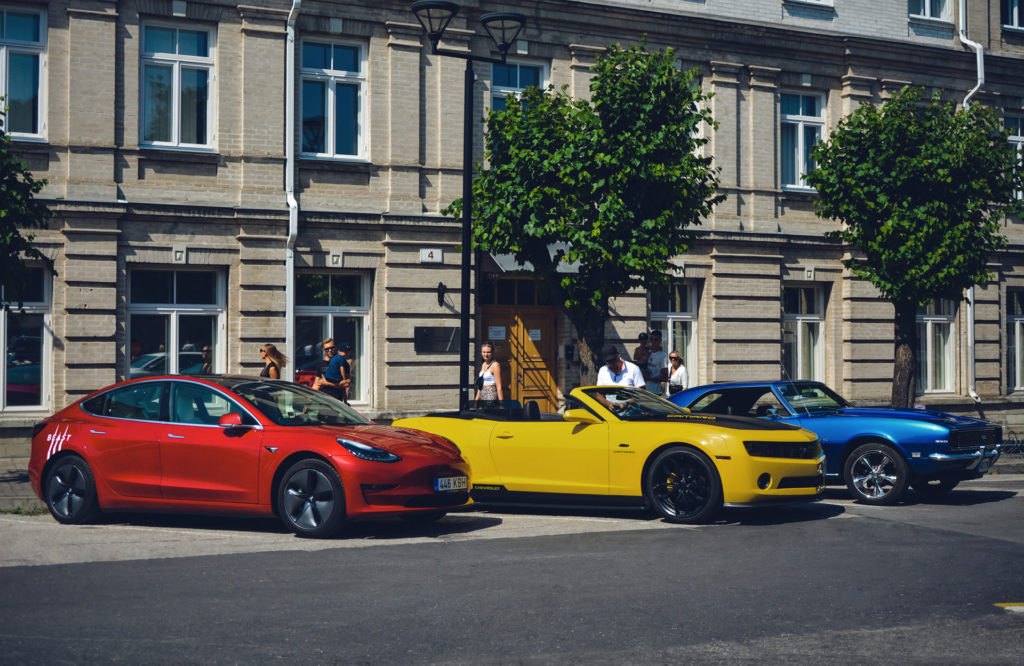While there is no certain line drawn between electric vehicles and fuel-burning cars, people still wonder, which of these vehicles suits their driving styles the best. After all, it comes down to the preferences of the individual looking for a car. Our team here at Beast has brought out some pros and cons surrounding EV’s to analyse their bonuses as well as shortcomings. So let’s jump straight in!

Single-speed all the way! (Gotta go fast!)
First and foremost, electric vehicles run on a single-speed transmission that can be reversed, without having the need to add another gear. This provides a smooth ride, and an instant acceleration as soon as we hit the pedal. There is no delay in the power transfer as we see in conventional vehicles.
Without different gears, we can also achieve impressive acceleration speeds. For example a Model 3 Performance in our fleet does 0-100km/h in just 3 seconds.
One foot on the pedal!?

Apart from an amazing acceleration, electric vehicles also provide brakeless driving. When the pedal is pressed down, the car speeds up, but as soon as we release the accelerator, the car automatically slows down. This makes the driving even more luxurious and comfortable.
In addition, brakeless driving also regenerates power to the battery when the car is slowing down. The vehicle itself becomes even more efficient in terms of economy.
It is so quiet!
Electric vehicles are much quieter than diesel or petrol cars. With fuel-burning vehicles, we can only suppress the noise of the car up to a certain point, using mufflers or sound isolation. But since they are internal combustion engines, they make noise, whereas the only noise from an electric vehicle comes from the tires or wind. Therefore, producing much less road noise and also providing a peaceful driving experience.
More expensive? It’s all about perspective …
Electric vehicles are still more expensive to purchase than other fuel-consuming cars. In 2022, the cheapest electric vehicle and the cheapest petrol car still have a price difference of over 10 000 USD. This is still a huge gap in between the vehicles. But the electric car production is still relatively new and the past years have shown a decrease in prices. Therefore, in the upcoming years we might be looking at the EV’s being even cheaper than they are now. Although, once one has bought an EV, the daily running costs are significantly lower compared to petrol or diesel models. The cost will still vary, depending on where, when and how it was charged, but still, it will cost a lot less than filling the tank of a petrol or a diesel car. (With Beast, everything is included in the price, charging as well.)
Longing for the day, when charging electric vehicles won’t be as time consuming …
The range of an EV is still not quite there for longer journeys. Most petrol or diesel cars can drive over 600 kilometers with a full tank. Electric vehicle range depends immensely on the battery, the range can vary from 50 kilometers to 650 kilometers. But we need to take into consideration that the batteries need to be charged as well. For example a Model 3 in a 50kW charger takes about 45 minutes to charge, then the time consumption for a longer trip is a lot bigger than that of a fuel consuming vehicle.
Technology is advancing each second, hopefully, the electric vehicles will soon have the range and faster charging speeds to improve the driving experience.
Read more about Beast and stay tuned for more blog posts coming weekly!







